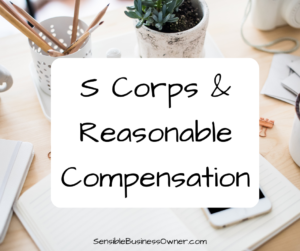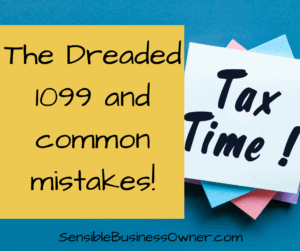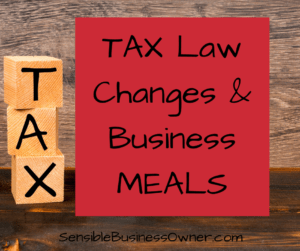Are your products and services taxable?
Every year the sales tax laws become more complicated. It can be a challenge for a new business owner to determine if they need to charge sales tax on a particular product or service. The laws vary greatly from state to state and industry to industry. States are working hard to fill their budget deficits and are looking more and more to sales tax income. Due to this, many states are hiring more sales tax auditors which can lead to compliance issues for companies. Businesses that get behind on paying sales tax or are remitting sales tax incorrectly can find themselves deep in penalties that for many will force them to close their doors.
There are many oddities to the sales tax law. For instance, in Texas, at the time of this writing, shoe shining is a taxable service but tattooing and tanning are non-taxable services. Lawn care is a taxable service but only if your sales income is at a certain level. Laundry cleaned by a professional is taxable but coin laundry machines are not taxable. It is important to check each service and/or product you sell to determine if you should be collecting sales tax.
Once a business owner determines that it is necessary to charge sales tax there are many steps that need to be taken to be sure they are collecting and paying correctly. The below information is written based on the laws in the state of Texas.
Necessary Steps
1. Filing Frequency
It is necessary to determine the frequency of remitting the amount to the Texas State Comptroller. If a business collects $500 or more a month in-state sales and use tax they must remit on a monthly basis. The tax is due on the 20th of the next month. For example, taxes collected in June would be due to the taxing authority by July 20. If a business collects less than $1500 in a calendar quarter but more than $1000 in a year then they must remit quarterly. Taxes are due on the 20th of the month following quarter-end. If a business collects less than $1000 per year in sales and use tax they will remit the tax payment on an annual basis. The tax would be due on January 20. For example, taxes collected from January 1, 2020, to December 31, 2020, would be due by January 20, 2021.
2. No Tax Due Reporting & Penalties
It is important to note, you must file a sales and use tax return even if you don’t owe taxes for a given period. Failure to file a zero return can subject your business to fines. Equally important, extensions on filing dates cannot be requested. The due dates are firm and fines, penalties, and interest can be imposed on late filings and late payments. It pays to remit sales tax by the due date. Sales tax payments received on time are allowed a discount on the tax. This can be nice savings for a business. Once payment is 1 day late a 5% penalty is applied to the amount owed. Once the payment reaches 31 days late the penalty jumps to 10%, which is applied to the amount owed. When the payment becomes more than 60 days late, interest is added in addition to the 10% penalty. The more you owe in taxes the bigger the penalty and interest amount will be.
3. Notice Letters
The State Comptroller might try to help you out by sending you a Notice of Tax/Fee Due letter. This letter is sent to some businesses that are late filing and paying their return. The letter includes an estimate of sales tax due for the filing period. If you do not file and pay the estimated tax or the proper calculated tax within 20 days after receiving this letter you will be charged an additional 10% penalty on the outstanding tax. If your payment is over 60 days late your penalty would be 20% of the amount owed plus interest plus any collection fees. Failure to pay and file may result in collection actions by an outside party. In addition to the penalties listed above, liens and criminal charges can be imposed.
As you can see, these implications are steep and could very quickly cause an already struggling business to close its doors. I recommend routinely moving sales tax you receive to a separate bank account. Keep these funds separate from your operating funds, so when it comes time to remit sales tax it will not be a struggle to file the proper amount in a timely manner.
For more business tips and best practices check out our Guidebook, Becoming a Sensible Business Owner.
~ Brandon & Christi are successful business owners who enjoy traveling and making a mess in the kitchen with their two daughters.
The article is for informational purposes only and should not be construed as business, accounting, or legal advice. Details are subject to change without notice.
Each business’s tax situation is different, be sure to consult with your tax professional on your specific tax plan.
Copyright © 2015-2020, Brandon & Christi Rains, Rains Group LLC DBA The Sensible Business Owner, ALL RIGHTS RESERVED















